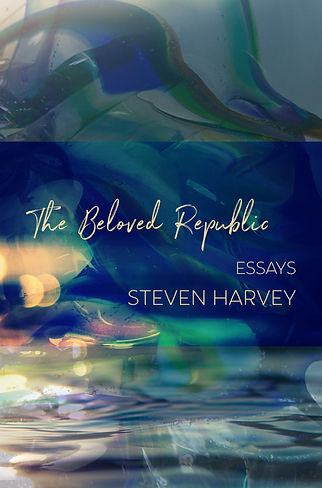Keep Up with the Essay One Paragraph at a Time
A New Feature (Almost) Every Friday
We Are Now on Threads as wll as Facebook
Learn More here
Sign Up for Weekly Reminders here
January 30, 2026
from “Who Are We Missing”
by L.C. Killingsworth
in River Teeth Fall 2025
“...the precise opposite of loneliness.”—L. C. Killingsworth
Our final feature from the Fall 2025 issue of River Teeth magazine is from “Who Are We Missing” by L. C. Killingsworth. It carefully describes an overwhelming emotion which the author experienced at a funeral after a long stretch of feeling bereft.
You can learn more about River Teeth journal at the website here. Read the Fall 2025 issue at Project Muse here.
The Paragraph of the Week
I can only describe the feeling as the precise opposite of loneliness. Though I suppose the evangelicals surrounding me would label it more simply: the presence of God. The feeling that we are all grabbing onto the same bare wire, letting a high-voltage current of humanity rip through us. There is a fullness, a charge to the feeling that cracks me open. It makes me forget that Harper is watching me cry—or, rather, replaces my embarrassment with a joy. Joy that we are crying together, about the same thing.
—L. C. Killingsworth
Commentary
The moment of recognition, that is what the personal essayist creates while looking within, generously sharing the hard-won discovery with us. Arriving at the funeral of a much-loved student from her past, L. C. Killingsworth hides the anger and sadness of her life behind a guarded persona. When asked what she has been up to by a former colleague before the service begins, she wonders what to say. “Most of my last decade has been spent expelling bodily fluids—vomit, milk, blood, my eternal soul—into a variety of receptacles, including human ones. Should I tell her about that?” Instead she says she has been doing nothing, “just, you know, working. Remotely.” When the service begins, though, emotion overwhelms her and she realizes in an epiphany that what she is feeling is what she has been missing. She recognizes it instantly, “the way a starving person knows the smell of food,” and suddenly understands why she has been furious and lost. As she and everyone else in the room focuses together on the young person who has died, “all feeling the shape of the same hole in the world,” she experiences “the precise opposite of loneliness,” an emotion that “cracks her open.” Any embarrassment about crying uncontrollably in public is replaced with joy. “Joy that we are crying together, about the same thing.” It is a privilege as a reader to listen in as a an essayist makes such an intimate, life-changing discovery.
—THE
~ ~ ~
Weekly Reminders from
The Humble Essayist
We are now on Threads and will begin posting weekly reminders there. If you are on Threads, please follow us there. We are still on Facebook as well. Due to the toxic nature of X we no longer promote our site there.
The best way to keep up with us is to add your name to our growing list of subscribers, and we will send free, brief, weekly reminders of our features with a link to the page directly to your email. Please click on the blue button to subscribe.
Unsubscribe Here.
~ ~ ~
Announcements
New Feature
The Humble Essayist Book Club
A book club for essayists? Yes! Several times a year The Humble Essayist will devote an entire month of features to a book by one major essayist or an issue of a magazine and we invite you to read along. Our first book will be George Orwell: Selected Essays (Oxford). We will run the features during the month of September and encourage you to comment on it online. More to come.—THE

The Beloved Republic Recognized
by the PEN Award Series
The Beloved Republic has been selected for the Longlist for the PEN/Diamonstein-Spielvogel Award for the Art of the Essay.
PEN International is a worldwide association of writers, founded in London in 1921 to promote friendship and intellectual co-operation among writers everywhere. The association has autonomous International PEN centres in more than 100 countries.
Other goals include emphasizing the role of literature in the development of mutual understanding and world culture; fighting for freedom of expression, and acting as a powerful voice on behalf of writers harassed, imprisoned and sometimes killed for their views.
See the trailers below to learn more about the book.

The Beloved Republic by Steven Harvey
Available at Bookstores and Online
See more at the author's website and check out our video trailers here.

The Humble Essayist Press
Closes Book Publication Arm
The Humble Essayist Press has always needed to stay humble in its ambitions, and with the publication of our final book, Time's Passage by Robert Root, the passage of time has brought the book publication arm of the Humble Essayist Press to an end. Its editors have set off on other composing and editing projects with much appreciation and admiration for the texts that THE Press was allowed to bring into the world. We hope those books continue to have readers and to those authors we urge, “Write on.” Thanks so much for giving us what you did.
All of the press's publications are still available. You can find them here. The Humble Essayist will still carry on and continue to feature the Paragraph of the Week.


